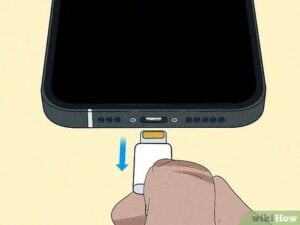The Dodge Charger, a beloved icon in the world of American muscle cars, is sadly being discontinued. But why is Dodge Charger being discontinued? Well, the answer lies in a shift towards a more sustainable future. As automakers navigate the world of electric and hybrid vehicles, Dodge has decided to focus their efforts on producing more environmentally friendly cars. While this may come as a disappointment to Charger enthusiasts, it’s a necessary step towards reducing carbon emissions and embracing the changing automotive landscape. So, let’s delve into the reasons behind the discontinuation and explore what this means for the future of Dodge.
Why Is Dodge Charger Being Discontinued?
The automotive industry is constantly evolving, and manufacturers frequently make decisions to discontinue certain models to make way for new offerings or to align with changing consumer preferences. In the case of the Dodge Charger, a popular and iconic muscle car, the decision to discontinue the model has left many enthusiasts wondering why.
In this article, we will explore the reasons behind the discontinuation of the Dodge Charger, delve into the factors influencing the decision, and analyze the potential implications for both Dodge and its loyal customer base.
The Rise and Legacy of the Dodge Charger
Before we dive into the reasons for its discontinuation, let’s take a moment to appreciate the rich history and legacy of the Dodge Charger. First introduced in 1966, the Charger quickly gained popularity as a high-performance vehicle known for its power and aggressive styling. Over the years, it became an icon of American muscle cars, capturing the hearts of car enthusiasts and appearing in various movies and TV shows.
The Charger’s legacy stems from its powerful engine options, distinctive body design, and its association with speed and performance. Carrying the torch of muscle cars, the Charger continued to evolve through multiple generations, embracing modern technology without compromising its classic appeal.
The Shift Towards Electric Vehicles
One significant factor contributing to Dodge’s decision to discontinue the Charger is the global shift towards electric vehicles (EVs) and cleaner energy sources. As governments and consumers become increasingly concerned about environmental impact, automakers are under pressure to produce more eco-friendly offerings.
While Dodge has been investing in electric technology with the release of models like the Dodge Durango SRT Hellcat, the Charger’s large V8 engine lineup doesn’t align with the future direction of the brand. The American automaker has made it clear that their focus is shifting towards electric and hybrid vehicles, with plans to introduce a full electric muscle car in the near future.
Changing Consumer Preferences
Another influential factor driving the discontinuation of the Dodge Charger is the changing preferences of consumers. In recent years, there has been a rising demand for SUVs and crossovers, with many buyers prioritizing practicality, cargo space, and utility over high-performance cars.
The decline in sedan sales, especially in the United States, has been well-documented. As consumers shift their preferences towards larger vehicles, the market for sedans like the Charger has shrunk. Dodge’s parent company, Stellantis, has been realigning its product portfolio to cater to these changing demands, and unfortunately, the Charger no longer fits within their long-term strategic plans.
Market Saturation
The automotive market is highly competitive, and the Dodge Charger faces stiff competition not only from other muscle cars but also from a wide range of vehicles across different segments. The Charger’s niche appeal restricts its potential customer base, limiting sales volume compared to more versatile options like SUVs or mid-size sedans.
With extensive options available, consumers have a plethora of choices when it comes to selecting their next vehicle. While the Charger has loyal and passionate fans, the market saturation and increasing competition make it challenging for the model to maintain consistent sales numbers.
The Impact on Dodge and Enthusiasts
The discontinuation of the Dodge Charger marks the end of an era for muscle car enthusiasts and loyal Dodge customers. This decision may leave some disappointed, as the Charger holds a special place in the hearts of many who appreciate its raw power, performance, and iconic design.
However, this move by Dodge is not all doom and gloom. By focusing on electric and hybrid vehicle development, Dodge aims to stay relevant and adapt to the changing automotive landscape. The brand’s commitment to embracing new technologies suggests that exciting possibilities lie ahead for Dodge enthusiasts.
The Future of Dodge
While bidding farewell to the Dodge Charger may be a bitter pill to swallow, it also opens the door for new and innovative models from the American automaker. Dodge has already hinted at a future electric muscle car, promising enthusiasts a thrilling performance while embracing greener technology.
With the rapid advancements in electric vehicle technology and growing consumer demand for sustainable options, Dodge’s decision to discontinue the Charger demonstrates their commitment to maintaining a competitive edge and staying at the forefront of automotive innovation.
In conclusion, the discontinuation of the Dodge Charger is driven by various factors, including the shift towards electric vehicles, changing consumer preferences, market saturation, and Dodge’s strategic realignment. While the Charger may no longer be in the brand’s lineup, its rich legacy will continue to resonate with car enthusiasts for years to come.
Dodge’s decision to prioritize electric and hybrid vehicles reflects the evolving automotive landscape and the brand’s commitment to embracing new technologies. Although the Charger’s departure may be bittersweet for fans, it also paves the way for exciting new offerings that combine performance and sustainability.
As Dodge moves towards a greener future, enthusiasts can look forward to the next chapter of the brand’s evolution, eagerly anticipating the arrival of an electric muscle car that will carry on the Charger’s spirit of power, performance, and innovation.
Dodge to discontinue Challenger, Charger models
Frequently Asked Questions
Why is Dodge Charger being discontinued?
The Dodge Charger is not being discontinued as there are no official plans to discontinue the model. It continues to be a popular choice among car enthusiasts and has a loyal customer base.
Will the Dodge Charger be discontinued in the future?
There is no concrete information or official announcements about the discontinuation of the Dodge Charger in the foreseeable future. As long as there is demand and a market for the Charger, it is unlikely to be discontinued.
Is the decision to discontinue the Dodge Charger due to poor sales?
No, poor sales are not the reason for the discontinuation of the Dodge Charger. The Charger has consistently been one of Dodge’s best-selling models, and its popularity has remained strong over the years.
Will Dodge replace the Charger with a new model?
While there have been rumors and speculations about potential replacements for the Dodge Charger, there is no official information regarding a specific model to replace it at this time. Dodge continues to focus on improving and updating its existing lineup.
Are there any plans to discontinue the Dodge Charger due to shifting market trends?
As of now, there are no plans to discontinue the Dodge Charger due to shifting market trends. Dodge recognizes the Charger’s appeal and value in the market and continues to cater to customers who appreciate its distinctive features and performance.
Final Thoughts
The discontinuation of the Dodge Charger raises questions as to why such a popular and iconic vehicle is being removed from the production line. The primary reason behind this decision is the shift towards electric and hybrid vehicles in the automotive industry. With an increasing emphasis on sustainability and fuel efficiency, Dodge is redirecting its focus towards developing and promoting greener alternatives. Additionally, the market demand for larger sedans has been declining in recent years, further influencing the decision to discontinue the Charger. Ultimately, this move reflects the changing preferences of consumers and the industry’s push towards a more eco-friendly future.


